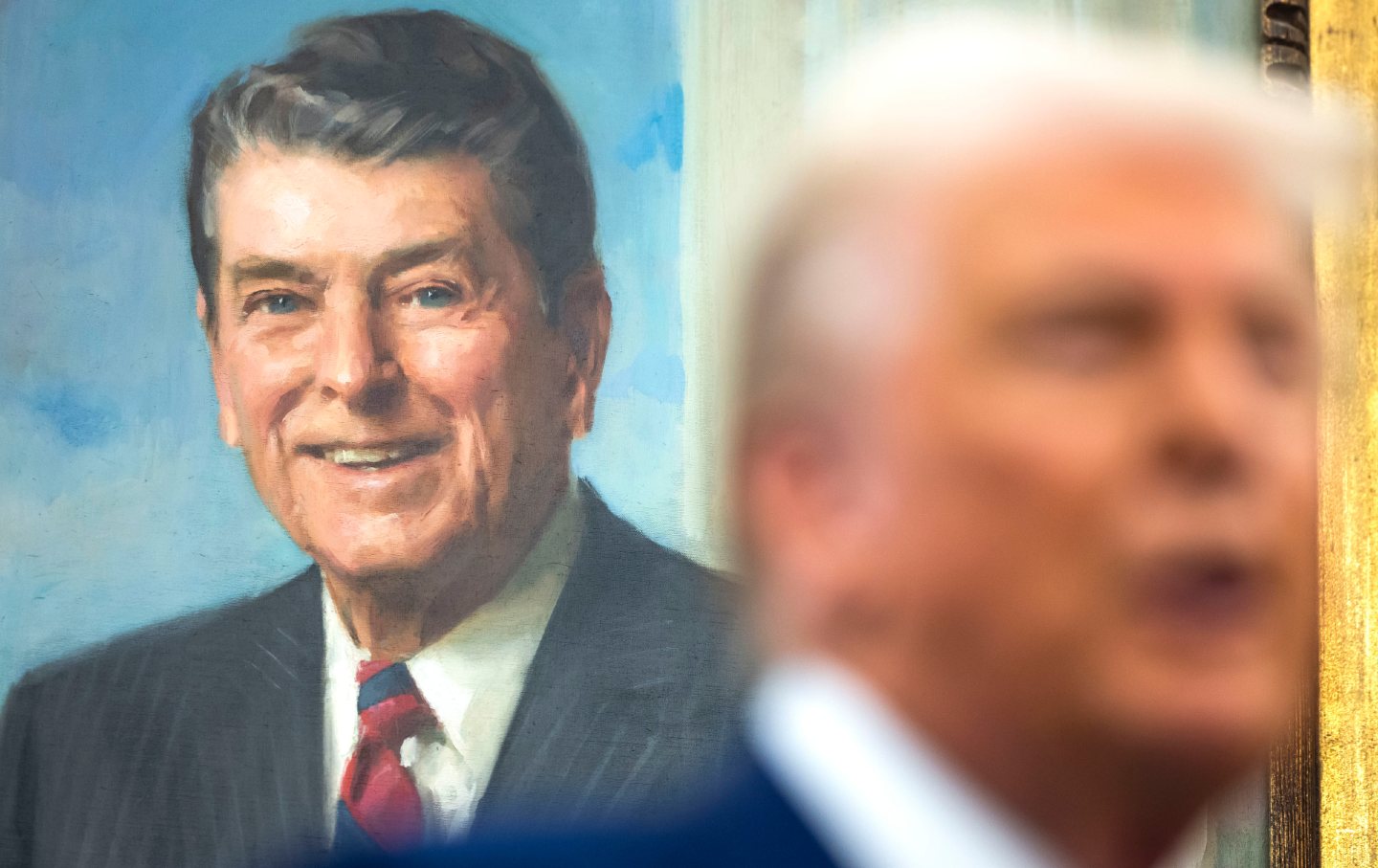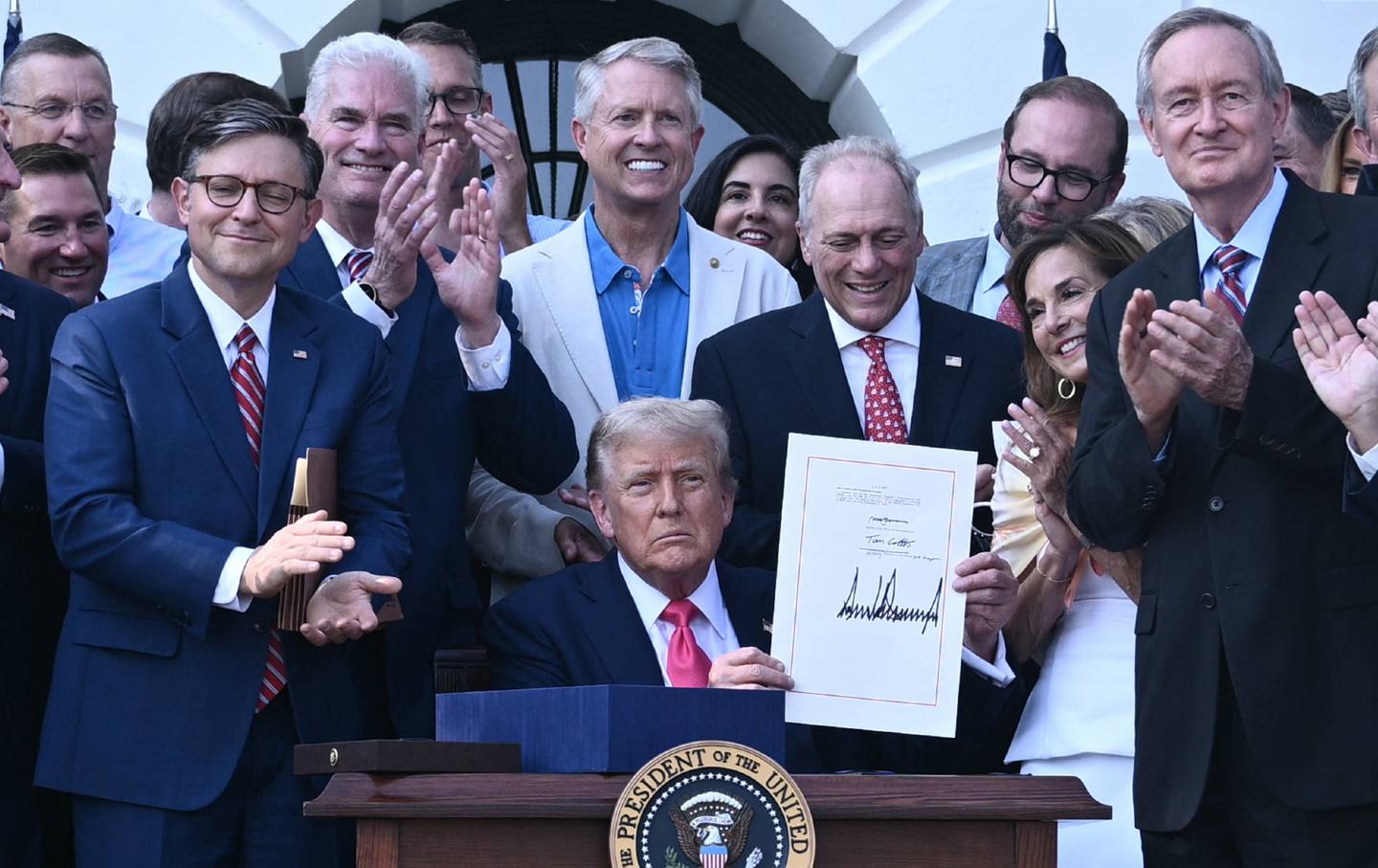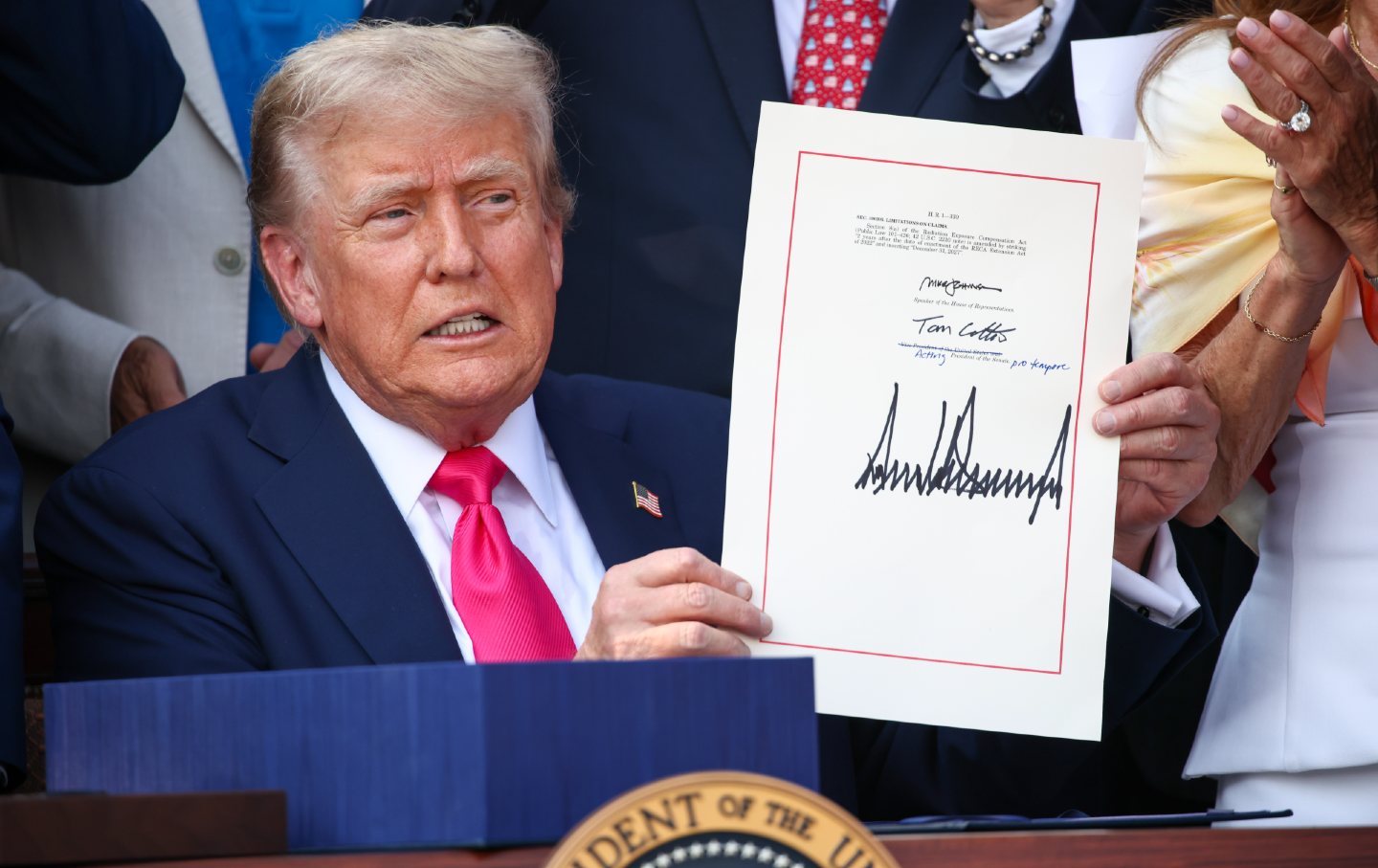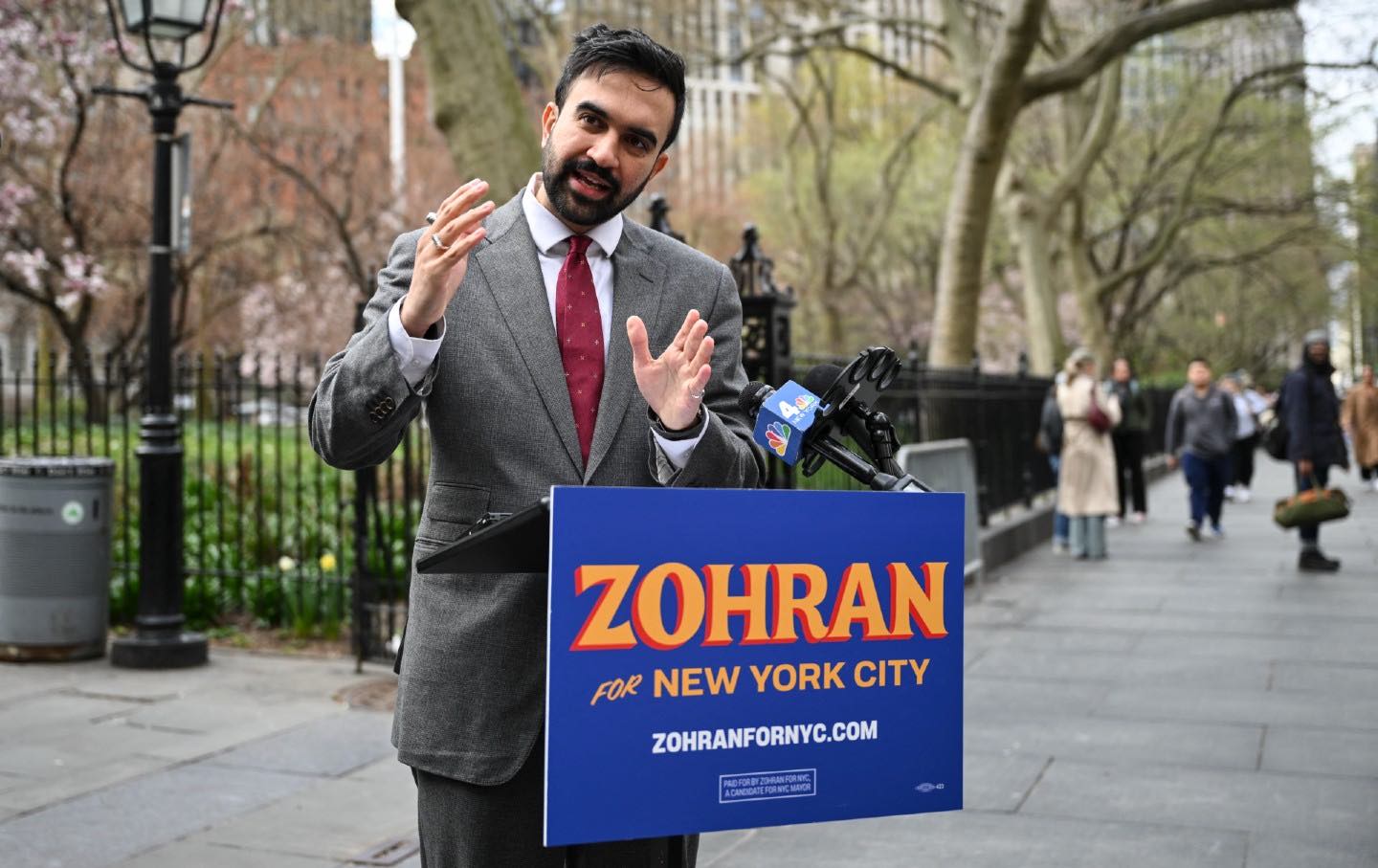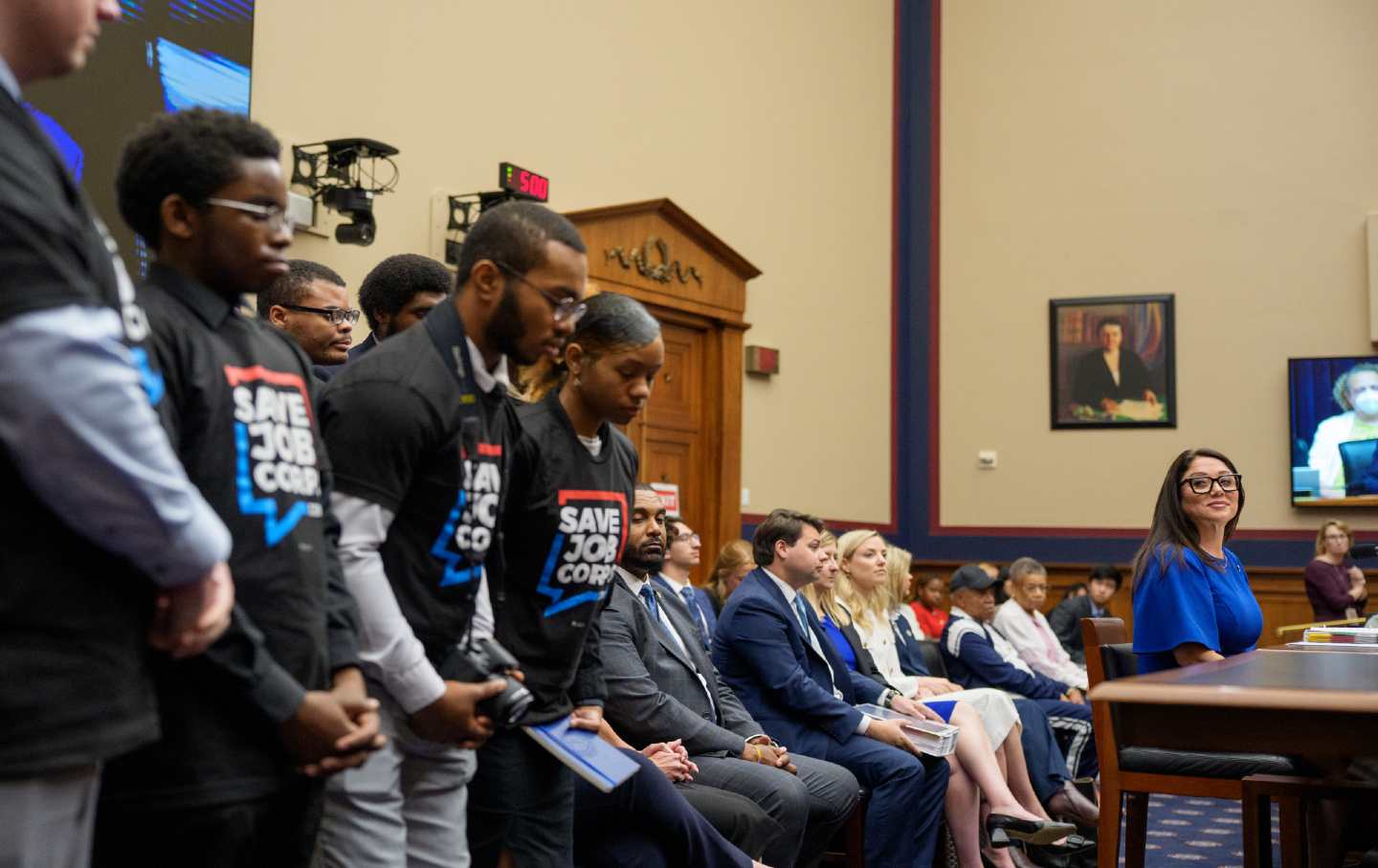Eating Meat While Deporting Those Who Produce It
The people who do the dirty work of killing and processing animals hold up our food system. Trump is putting them in danger.
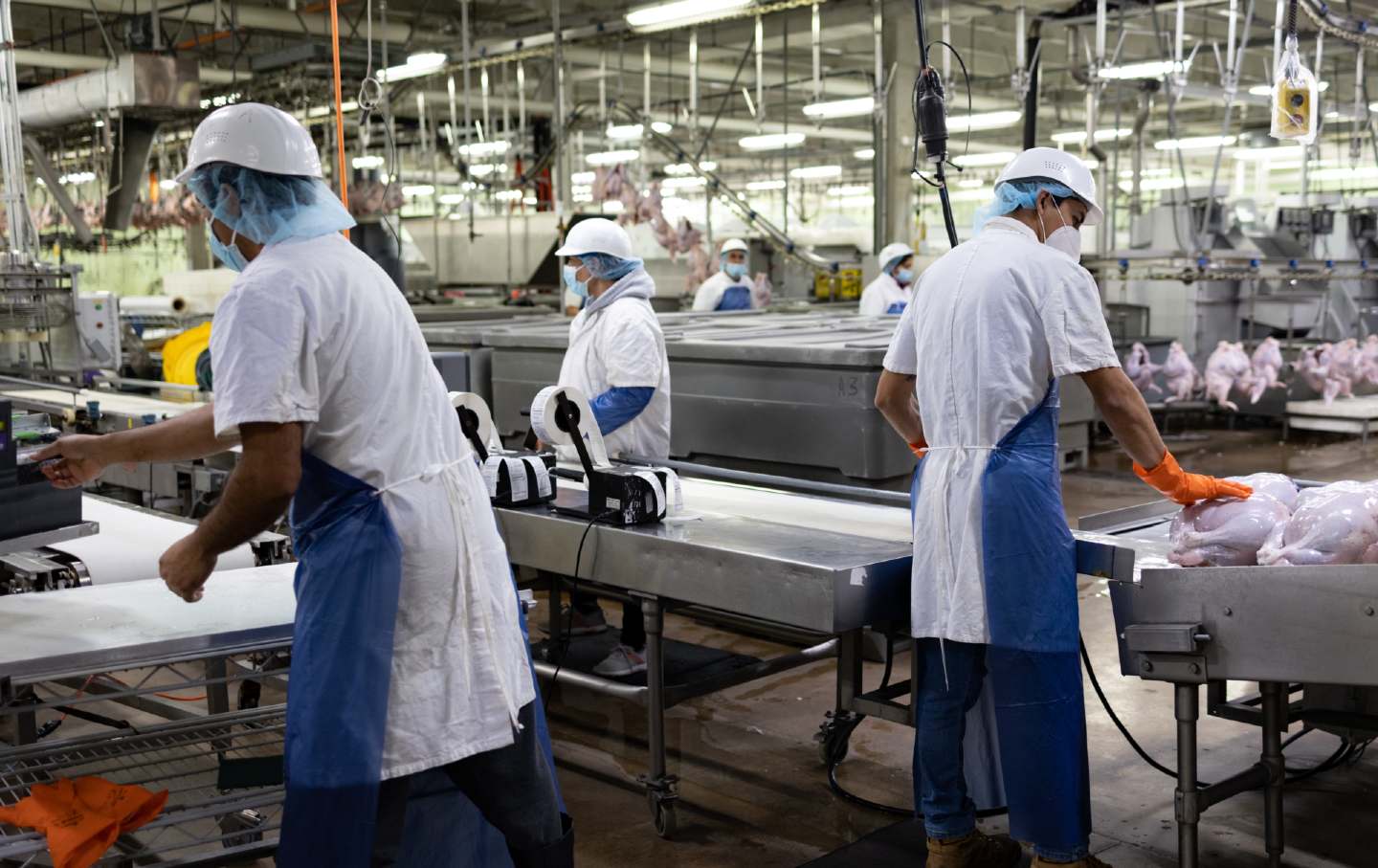
Workers prepare turkeys to be chilled in Orefield, Pennsylvania.
(Hannah Beier / Bloomberg via Getty Images)President Donald Trump famously likes his steaks well-done. Health Secretary Robert F. Kennedy Jr. follows a “carnivore diet.” In April, The New York Times declared, “Meat Is Back, on Plates and in Politics” and that a protein craze is sweeping the nation. And yet, as the United States consumes more meat, our country is engaging in the mass deportation of the workers who cut beef, pork, and chicken.
A poultry processing worker in Arkansas told me about the Trump administration, “They eat out of our hands.” She noted that at the height of the Covid-19 pandemic, meatpacking workers were considered essential and called heroes, but she said, “Now they are throwing us out of the country.”
On June 10, 2025, Immigration and Customs Enforcement (ICE) agents raided a Glen Valley Foods in Omaha, Nebraska, detaining nearly 100 workers. As a result, in the following weeks, production at the plant fell by 70 percent. According to Steven Hubbard of the American Immigration Council, around 23 percent of workers in the meatpacking industry are undocumented and 42 percent are foreign-born. This isn’t new. For decades, the US food system has relied on undocumented workers. During a January 2025 meeting of Venceremos, a worker-based grassroots organization that supports poultry workers in Arkansas, a poultry worker said, “I work with someone who is undocumented, and we do the same work. Are you going to judge us? Am I better than the person who is undocumented? We do the same work, and they pay us the same wage. We are equal.”
During a press conference that month, US Secretary of Agriculture Brooke Rollins said that mass deportations would continue until the United States achieved a “100 percent American workforce.” Rollins suggested that the “34 million able-bodied adults in our Medicaid program” would soon be employed in meatpacking facilities and on farms around the country.
As an investigative journalist who spent years covering the meatpacking industry, I can tell you why that isn’t true. Meatpacking is one of the most dangerous jobs in the United States, with an average of 27 workers per day suffering amputation or hospitalization. The work is brutal, with extended hours, extreme conditions, and little oversight.
I am from rural Arkansas, the home of Tyson Foods, the largest meatpacking company in the United States. In 2023, a US Department of Labor investigation found six children ages 13–17 working at a Tyson plant in Green Forest, Arkansas. When I began writing about the meatpacking industry in 2020, I never thought I would be writing about children. I thought that since 1938, when Congress passed the Fair Labor Standards Act, which banned child labor, we as a nation agreed that child labor was immoral, unconscionable.
And yet, in March 2025, Florida Governor Ron DeSantis backed a labor law that aimed to replace deported migrant workers with children. Although the law didn’t pass, states across the country, like my home state of Arkansas, have already begun to roll back child labor legislation. As the Trump administration deports meatpacking and agricultural workers, it appears that some lawmakers and lobbyists want to replace them with children.
A week after Trump’s 2025 inauguration, on January 27, the Meat Institute, a lobbying group, sent a letter to the White House requesting that the administration reduce regulations, including the Clean Water Act, salmonella inspections, and protections for workers. This cozy relationship, however, will be tested as meatpacking companies face increasing labor shortages.
During the pandemic, I witnessed how the first Trump administration classified meatpacking workers as essential and called them heroes. Now, during his second administration, I am watching workers get detained and deported while others go into hiding.
In March, I received a call from a poultry processing worker in Mississippi. She had initially agreed to an interview but called to tell me that, although she had asylum and was in the United States legally, she was going to quit her job and go into hiding. She had two young children and worried that if she kept her job, she could be swept up in a workplace raid and deported. “Who would take care of my children?” she wondered, before ending our call.
The meatpacking workers I have interviewed over the past five years continue to cut chicken, beef, and pork. Only now, they are doing the job of two or three people, picking up the slack for those who have been detained, deported, or left their jobs. Doing such work, they are more likely to be injured. Their hands, already a map of scars, tell the story of what we demand of them.
While Kennedy promotes eating more meat and cooking french fries in beef tallow as a part of the “Make America Healthy Again” movement, the workers who produce that meat are being detained and deported. As we expel the workers who feed us, we face rising food prices and labor shortages. Beyond that, the question remains: Who will do the dangerous and dirty work of killing and processing animals? But the reckoning goes beyond the consequences for consumers. Despite often dangerous labor conditions, the people who cut our meat hold up our food system. They deserve to be treated with humanity and dignity—not deported for doing work that many Americans refuse to do.
Take a stand against Trump and support The Nation!
In this moment of crisis, we need a unified, progressive opposition to Donald Trump.
We’re starting to see one take shape in the streets and at ballot boxes across the country: from New York City mayoral candidate Zohran Mamdani’s campaign focused on affordability, to communities protecting their neighbors from ICE, to the senators opposing arms shipments to Israel.
The Democratic Party has an urgent choice to make: Will it embrace a politics that is principled and popular, or will it continue to insist on losing elections with the out-of-touch elites and consultants that got us here?
At The Nation, we know which side we’re on. Every day, we make the case for a more democratic and equal world by championing progressive leaders, lifting up movements fighting for justice, and exposing the oligarchs and corporations profiting at the expense of us all. Our independent journalism informs and empowers progressives across the country and helps bring this politics to new readers ready to join the fight.
We need your help to continue this work. Will you donate to support The Nation’s independent journalism? Every contribution goes to our award-winning reporting, analysis, and commentary.
Thank you for helping us take on Trump and build the just society we know is possible.
Sincerely,
Bhaskar Sunkara
President, The Nation

